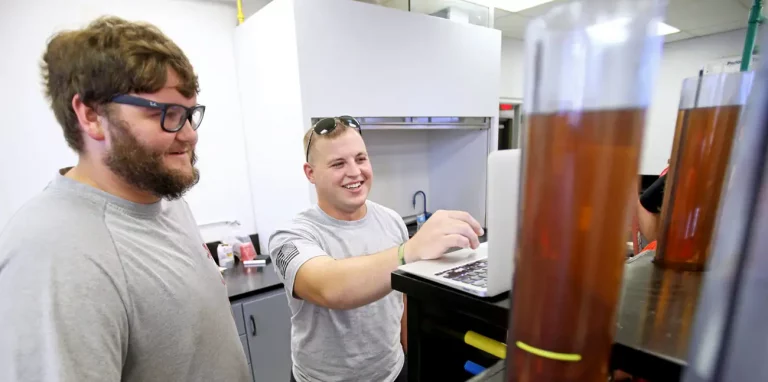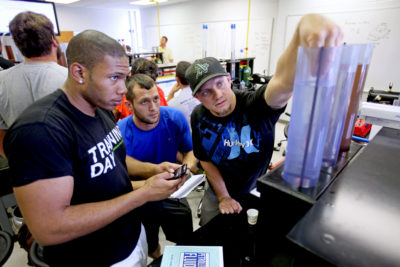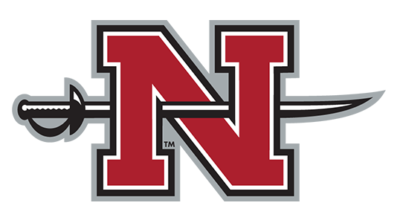
Welcome to the Department of Petroleum Engineering Technology and Safety Management
7/7 and 14/14 FLEXIBLE CLASSES
Looking for a specialized Petroleum Engineering Technology and Safety Management degree program? Look no further than Nicholls State University, where we’ve been educating energy professionals for 50 years. Our unique programs cater to non-traditional working students in the energy industry, particularly for Gulf of Mexico (GoM) operations and beyond. Our graduates have landed management and leadership positions in the energy sector worldwide, including many who work or have worked for Bureau of Safety Environmental Enforcement.
What sets us apart? Our PETSM degree programs offer flexible courses that accommodate rotational work schedules, including 7-days-on, 7-days-off and the 14-days-on, 14-days-off rotations. Graduates emerge as safety, drilling operations, and production operations managers, or they find employment in the service and supply sector of the petroleum industry. With such a unique program on offer, why look anywhere else? Choose Nicholls State University for your energy education needs.

Bianca Green
PETSM Graduate 2016
Senior EHS Specialist at The Boeing Company
“I graduated from Nicholls State in 2016 with my Associate of Science in Petroleum Services, Associate of Science in Safety Technology, and Bachelor of Science in Safety Management. During my last year or so of study I was fortunate to attain my first job in the safety industry due having my associates in Safety Technology and noting I was continuing my education to receive my bachelors in Safety Management the following year. That is the beauty and what truly stands out for the Nicholls PETSM program the associates degrees. The courses I have taken in the Safety Management program helped be get my foot in the door of learning the educational piece in the industry. Also, the flexibility of online learning allowed me to able to work almost fulltime all while studying for my degrees.
The support from faculty and staff was absolutely amazing and truly holds near and dear to my heart. It is because of each faculty member why I never gave up and continued pushing forward. Their support in ASSP was also motivating to network in other industries and expand my learnings.
Since graduating from Nicholls State I have continued my education and received my Master of Science in Occupational Health & Safety, obtained my CSP, worked for two global companies – Amazon Robotics Center in Houston Texas and currently The Boeing Company in Seattle, Washington.
Nicholls PETSM program is unique in many ways that afford students a great education and career path.”
OUR PROGRAMS
4-YEAR BACHELOR OF SCIENCE DEGREES
2-YEAR ASSOCIATES
ONLINE 2-YEAR ASSOCIATES
CAREERS
The associate degree program prepares students for the more complex technical and lower-to-middle management positions in production and drilling operations. The bachelor’s degree program courses and work experience prepares students for middle- to upper-level management positions. Petroleum Engineering Technology graduates are employed by drilling contractors, service companies and major energy companies. Starting annual salaries at $60,000.
Examples of jobs held by current and former students are as follows:
| Degree | Job Title | Employer |
| Bachelor’s Degree in Petroleum Services | Lease Operator | Wood Group PSN |
| Production Superintendent | El Paso Gas Company | |
| Production Tech | Valero Refinery | |
| Bachelor’s and/or Associate’s Degree inPetroleum Services | Wire Line Operator | Halliburton |
| Drilling Representative | Exxon Mobil | |
| Drilling Representative | Chevron | |
| Lease Operator | Chevron | |
| Associate’s Degree in Petroleum Services | Production Operator A | Hill Oil Corporation |
| Production Operator A | Chevron | |
| Compliance Coordinator | BSEE | |
| Logistics Coordinator | Halliburton | |
| Port Captain | Montco Boat Company | |
| Lease Operator | Danos & Curole |
Visit the Nicholls Career Services Web site to get job search tips and post your resume online.
View the Career Guide to the Safety Profession from the American Society of Safety Engineers Foundation and Board of Certified Safety Professionals.
Protecting America’s work force, the general public and the environment from injury and illness in today’s age of technological and scientific advancement has become one of the most challenging and rewarding career field available. The safety professional has the responsibility for studying materials, structures, codes and operations to find the best way to use resources to control hazards, those things which can lead to accidents, illness, fires, explosions, etc. Starting annual salaries $60,000.
The Safety Management program prepares its students for technical- and management-oriented positions in businesses, education, research organizations, government agencies and industries, such as:
- construction
- energy
- chemical
- manufacturing
- shipyard
- marine transportation
- insurance
- marine
- petroleum
The energy industry, which drives the economic base the state and nation, embraces a culture of safe and environmentally friendly exploration, development, construction and distribution of the nations oil and gas supply. The protection of social and economic losses resulting from accidents in the oil and gas industry is a challenge Louisiana and the nation — a challenge being met by the safety technology program at Nicholls by providing qualified and competent safety technologists.
Students are prepared for positions as:
- compliance officer
- safety engineer
- health and safety manager
- loss control specialist
- trainer
- program administrator
- inspector
- investigator
What is Petroleum Engineering Technology and how is it different from Engineering?
Basically engineering focuses on theory and conceptual design, while engineering technology focuses on application and implementation.
Our programs will educate students on the upstream portion of the industry – drilling, production and safety. This program will prepare students:
- for elevated management positions in drilling, production operations, well services and completion or the service and supply component in the oil and gas industry
- in areas safety, health and environmental segments of any industry
Our courses expose students to multi-segmented aspects of the industry in these areas:
- Exploration (Drilling and Completions) – the initial phase of searching of oil and gas. Next, the well is drilled and then completed. This phase has a business organizational structure and critical safety aspects which are presented in a similar way through the PETSM curriculum.
- Production – the next phase where oil and gas are extracted.
- Well Services (workover and intervention) – highly specialized and complex intervention methods performed throughout the lifecycle of a well. PETSM courses engage students in the operations required to enhance well production safely and efficiently.
- Plug and Abandonment – the permanent closing of a well. PETSM courses include common regulatory requirements for safe and environmental surety of well closures.
- Health, Safety, and Environment (HSE) – An aspect present in all areas of the industry. Adherence to HSE guidelines is required worldwide and dictated by internal policies of most corporations.
The PETSM curriculum goes beyond compliance to personal safety requirements and prepares graduates to effectively manage safety systems. Our courses are designed to promote opportunities as professional HSE specialist, HSE consultants, and HSE engineers.
Please click on this link to find out more on the difference between Engineering and Engineering Technology.
Department Mission
We educate engineering technology graduates through a unique online and rotating delivery schedule of robust instruction that prepares future leaders to safely managing complex operations in the petroleum industry which are critical to the energy needs of the world.
Program Mission
PETSM programs cultivate productive citizens and employees for Louisiana and the nation’s petroleum industry and its related fields in business, industry, education, and government by developing technical, supervisory, and intercultural knowledge and skills through quality teaching, research, and service.








